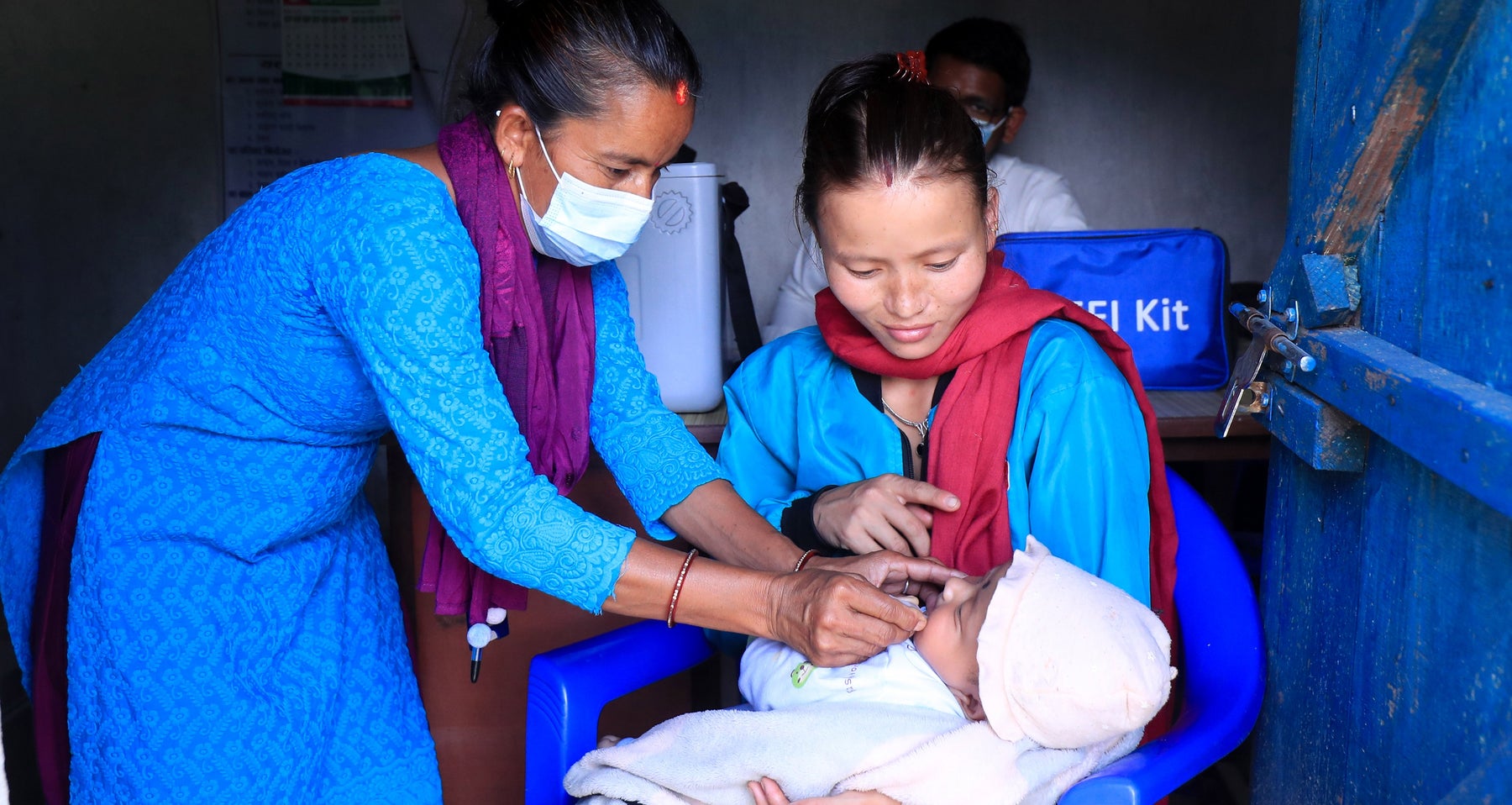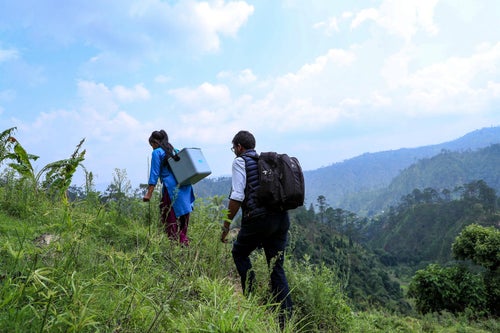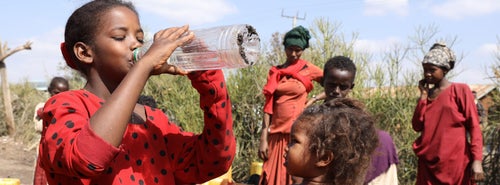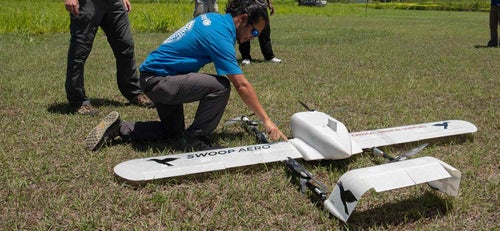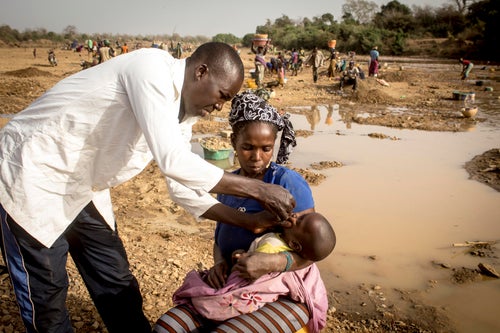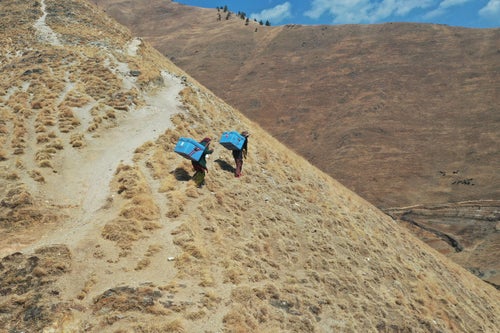UNICEF vaccinates almost half the world's children under five, every year.
Children are naturally resilient against the thousands of germs that they’re exposed to every day. Yet, there are some deadly diseases like measles, polio, tetanus, tuberculosis, diphtheria and whooping cough that they can’t fight, and their only defence is lifesaving vaccines.
In UNICEF’s The State of the World’s Children 2023: For Every Child, Vaccination report, we reveal the many compounding issues still affecting the rate of childhood vaccinations today. Sadly, a staggering 67 million children missed out on one or more vaccinations between 2019 and 2021 due to service disruption caused by strained health systems and diversion of scarce resources, conflict and decreased confidence.
Alongside our global partners, we’re working to vaccinate children here in the Asia Pacific and around the world because every child deserves the same protection against preventable diseases.
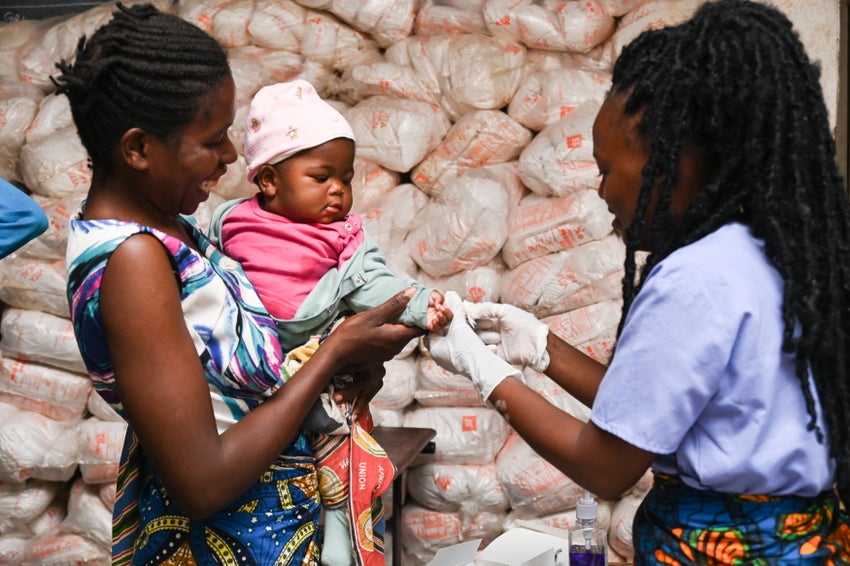
Twelve countries across Africa are set to receive 18 million doses of the first-ever malaria vaccine.
Malaria remains one of Africa’s deadliest diseases, killing nearly half a million children under five years old each year and accounting for approximately 95 per cent of global malaria cases and 96 per cent of deaths in 2021.
The malaria vaccine is a breakthrough in improving child health and child survival. It will be included in children’s routine vaccination programs in 12 African nations, with the rollout beginning in early 2024.
Delivering vaccines to those in need in the hardest to reach places
Women and children living in remote areas, experiencing poverty, those with a disability, or who are in an emergency setting are especially likely to be cut off from lifesaving vaccines, leaving them at greater risk of disease.
The COVID-19 pandemic put a huge strain on health systems around the world as well as logistics and supply chains. It also created a perfect storm for other disease outbreaks, such as polio, which can kill and paralyse young children. Around the world, polio was almost eradicated, but in 2022 it became endemic in Pakistan and Afghanistan.
A severe cholera outbreak is affecting the lives of children in places like Haiti, Syria and 11 eastern and southern African countries. The catastrophic consequences of floods, droughts, and tropical cyclones have worsened the disease's spread within these African nations. UNICEF is on the ground, working alongside our partners to vaccinate children against cholera, polio and other preventable diseases.
At a local level, UNICEF Australia is committed to supporting critical, underfunded programs here in Australia and in our neighbouring countries; Cambodia, Laos, Timor-Leste, Papua New Guinea, Sri Lanka, Solomon Islands, Vanuatu and the Pacific Islands. This work is made possible thanks to generous supporters like you, as well as the Australian Government through the Australian NGO Cooperation Program (ANCP).
"I worked on the polio eradication program in Cambodia in the 1990s. The disease was endemic, leaving kids paralysed. We worked with local parents and carers, where there can be issues of trust around vaccines, to explain their importance. Because of this successful community engagement, we reached children with vaccinations in every community and village in Cambodia. In five years, polio was eradicated."

2 to 3 m
Vaccination saves 2 to 3 million children each year from deadly diseases.
28 m
people worldwide, including many children, are currently affected by cholera. That is more than the entire population of Australia.
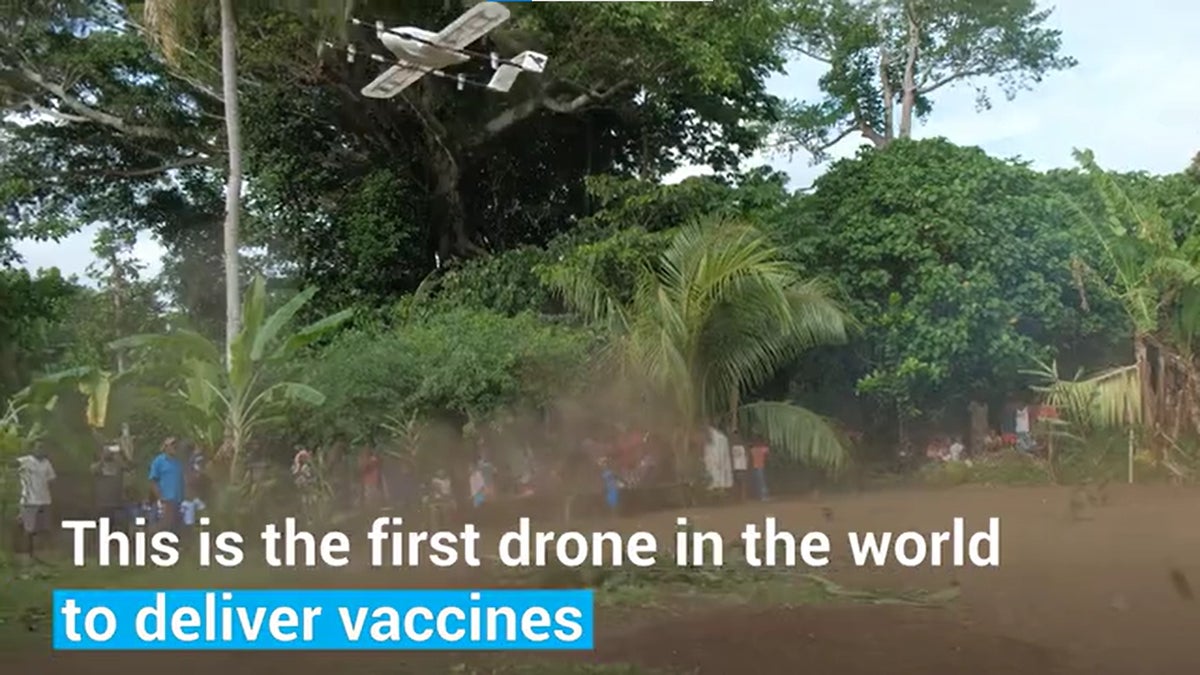
Vaccine delivery by drone
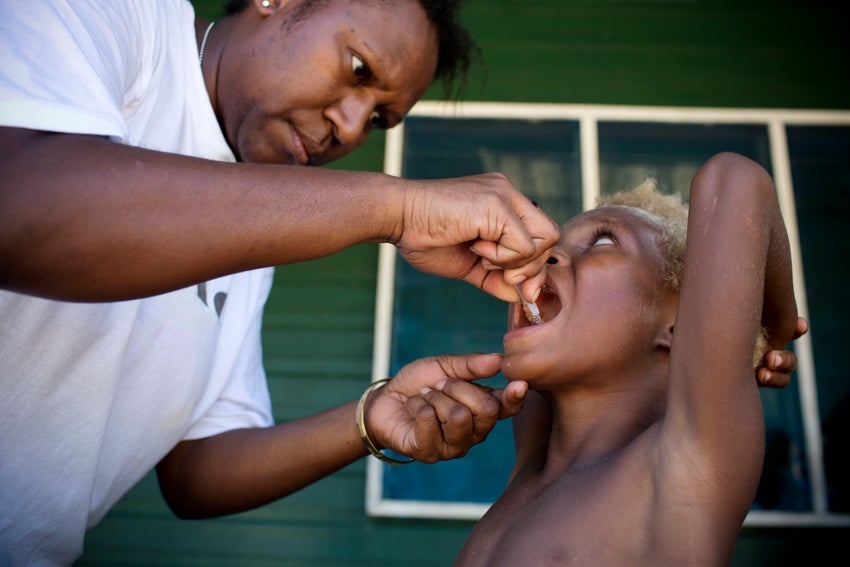
Improving Papua New Guinea's immunisation coverage
With only 47 per cent of children under one having received their completed immunisations doses, Papua New Guinea has one of the world's lowest immunisation coverages. We’re working to improve immunisation coverage in PNG and around the world by purchasing vaccines, training health workers, improving vaccine storage and transportation systems, and building trust in the communities to seek timely vaccinations.
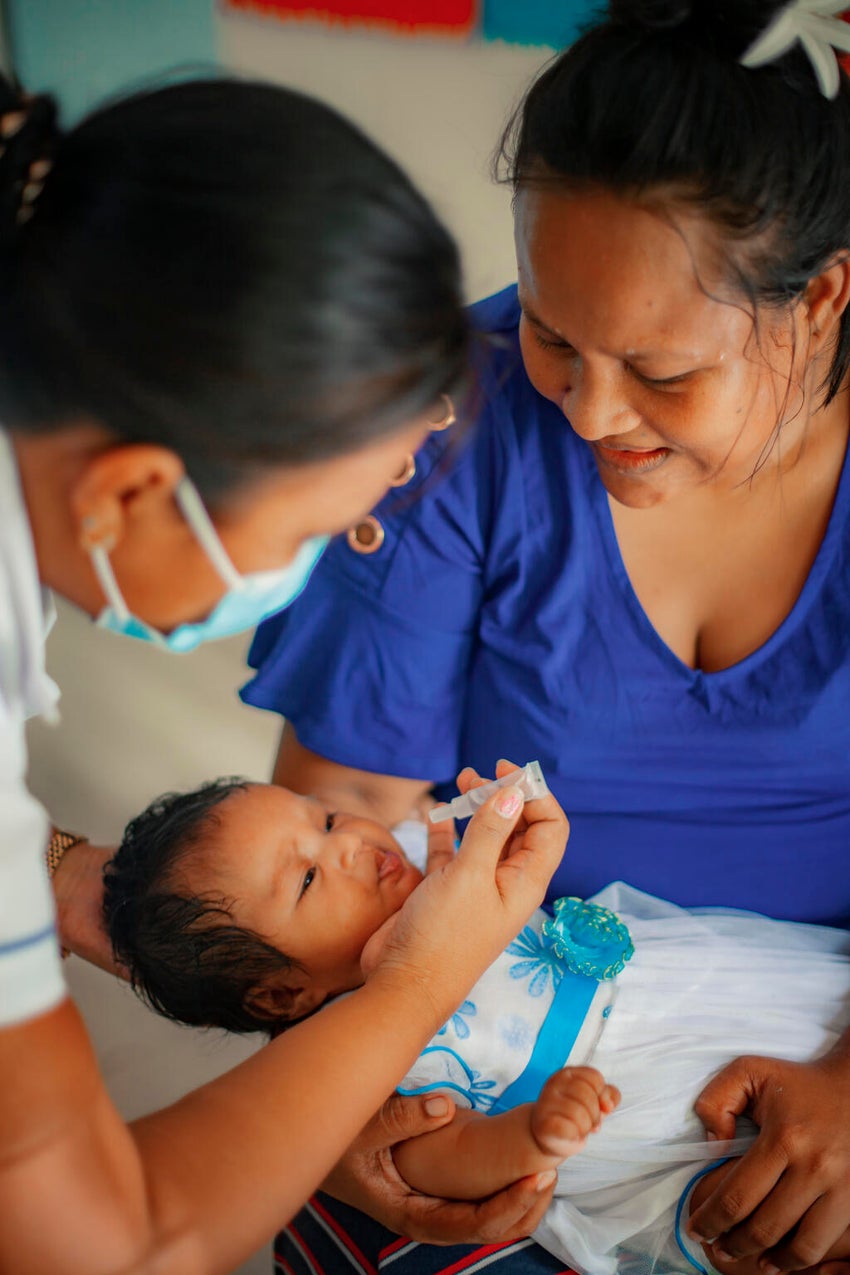
Meet Erenoa, a mother and vaccine and cold chain technician from Kiribati.
In the remote Pacific Island nation of Kiribati where access to safe, clean water is limited, children are more vulnerable to disease. When Erenoa’s first born child fell sick to rotavirus, a preventable diarrhoeal disease that is sadly responsible for a significant portion of deaths in under-fives, Erenoa became aware of the importance of childhood vaccinations.
With her newborn daughter in her arms, Erenoa is ensuring she is vaccinated against rotavirus and other preventable diseases.
“I learnt about vaccination through pamphlets which I distribute to clinics, and I know that vaccine is vital to prevent illness and that children should get vaccinated. I now educate my community on the importance of vaccinating children on time. This is vital in preventing types of illness, especially
Help us vaccinate the world's children
We’re working to immunise the world’s children against preventable and deadly diseases.
The impact of our work across immunisation
Keeping children safe with lifesaving vaccines.



